Timeline
From a walk in the woods in 2012 to global collaborations in 2023, the Pisces Foundation has strived to stay true to our vision: A world where people and nature thrive together.
While our approach has evolved as we learned from and reflected on the experiences of the field and the needs of our grantees, we have remained committed to achieving a safe climate, clean and abundant water for all, and access to the benefits of environmental learning and time spent outdoors. This timeline is a journey through some of the key milestones and moments in the Pisces Foundation’s evolution and the progress our partners have championed. It sketches the beginnings of a story that is ongoing, propelled by partners whose passion and strategies are shifting systems that hold problems in place–inspiring us with the impact they are creating in the world.
2012
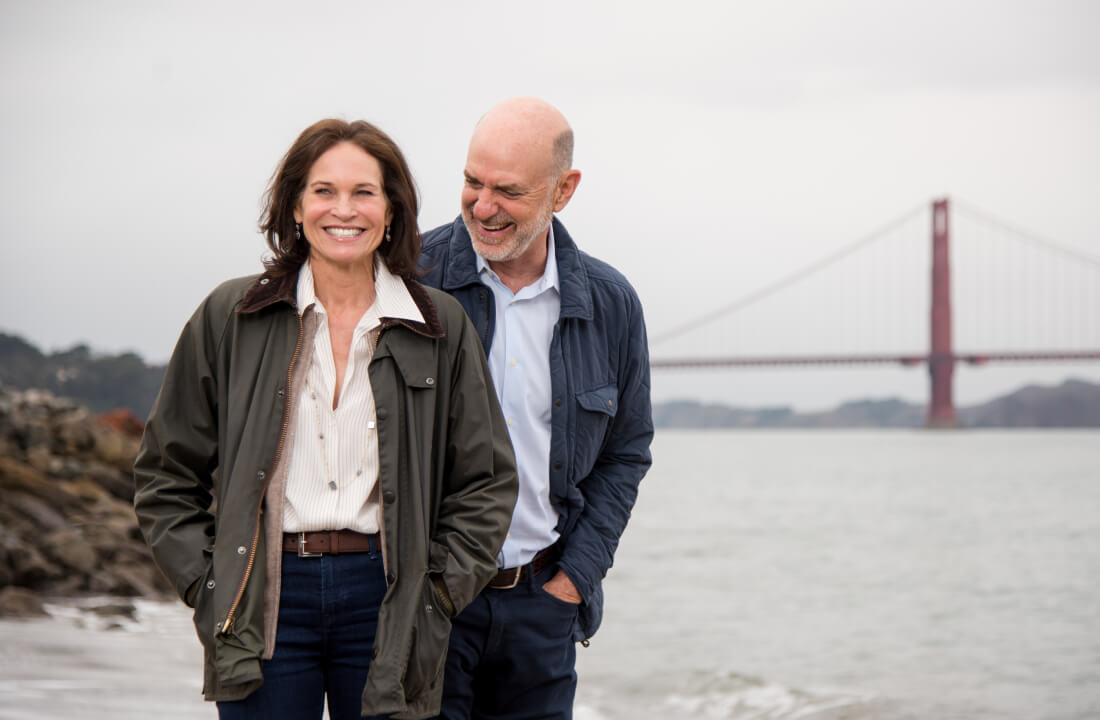
The ideas for what would become the Pisces Foundation begin with conversations between Randi and Bob Fisher as they walk through the woods near their home. They commit to partner in an environmentally focused philanthropy, guided by their interests in using their resources to make an impact. While appreciating the importance of individual institutions, the founders are interested in supporting an ecosystem of organizations and making a difference on a larger scale. They hire David Beckman to be the founding executive director and start working on environmental issues they all care about: fresh water, environmental education, and climate change.
2013
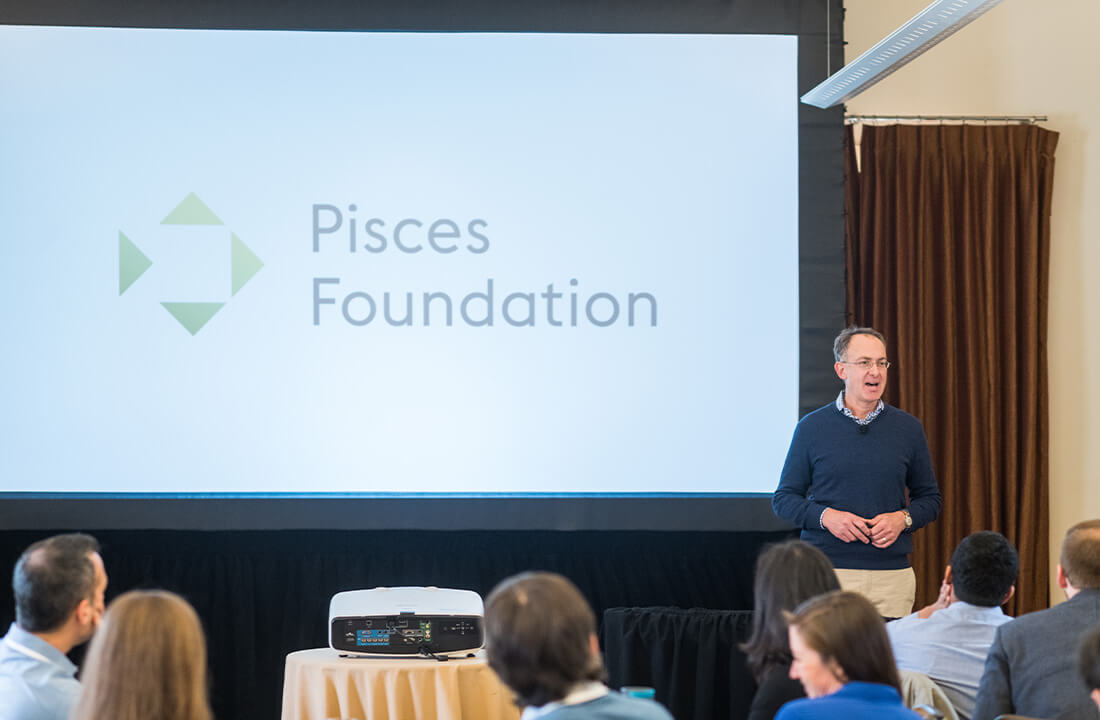
Following a strategic planning process with Redstone Strategies, the foundation frames an ambitious vision for the future - “People and nature thriving together” — and strategies to address three interconnected issues: Water, Environmental Education, and Climate and Energy. The vision proves durable because in recognizing the interconnectedness between environmental issues and social well-being, it sets the tone for the inclusive and collaborative approaches to grantmaking that the foundation increasingly centers over time.
Learning and evaluation as an institutional priority is embedded into Pisces’ earliest strategy development and is a throughline for all programmatic work going forward, including regular consideration of grantee feedback. The foundation engages a learning specialist — Rhonda Schlangen — who provides a decade of evaluative expertise to the foundation's evolution.
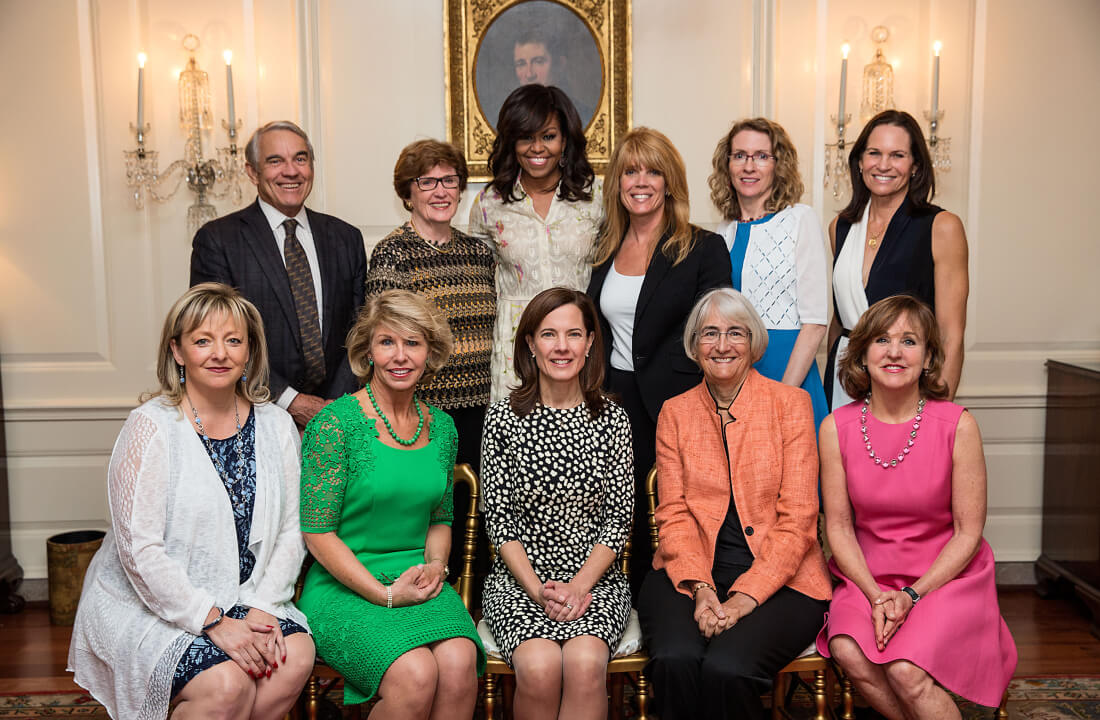
Motivated by the environmental education field's limited resources and connections, the Pisces Foundation collaborated with foundations and field leaders to design the Blue Sky Funders Forum, whose trustees are seen here with First Lady Michelle Obama. The first affinity space for funders to work in community to expand and inspire philanthropy focused on environmental learning and equitable access to nature, Blue Sky will grow from 12 to nearly 50 funders over the next decade.
Outcomes
2014
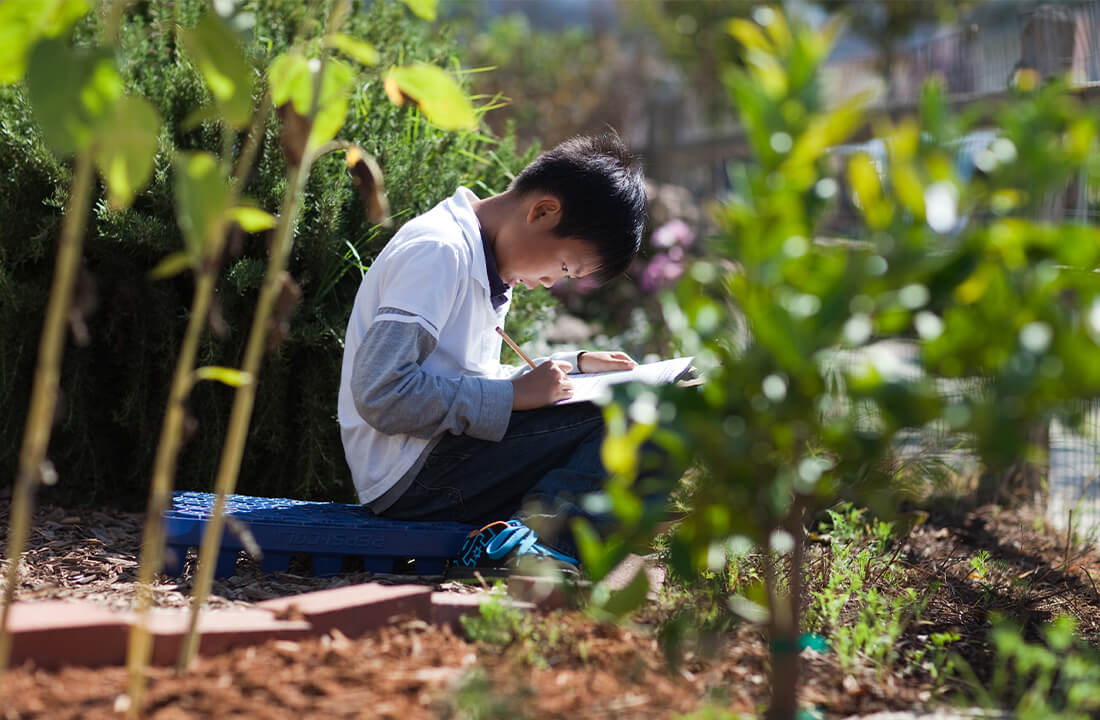
While the foundation’s work on water and climate focuses on central environmental challenges today, its environmental education strategy aims to mitigate those problems and diminish the number and gravity of new ones. Pisces’ investment in a national environmental education program is intended as a signal to others and show of support for the growing environmental education movement.

The Community Environment Initiative, a Bay Area local grantmaking program is launched. The intention is to have a place-based impact alongside (and in some cases connected to) the foundation’s national and international grantmaking. The learnings from engaging with local partners and the resulting relationships inform the foundation's strategic evolution back to local grantmaking in 2024.
Partners throughout the globe methodically build the case for mitigating super pollutants, including scientific studies, reports, and op-eds. Pisces partner, the Institute for Governance & Sustainable Development, publishes an op-ed in the New York Times on the importance of cutting super pollutants and to build the case for fast action on super pollutants. Over the following years, Pisces supports a range of partners in work that helps create momentum for the Kigali Amendment.
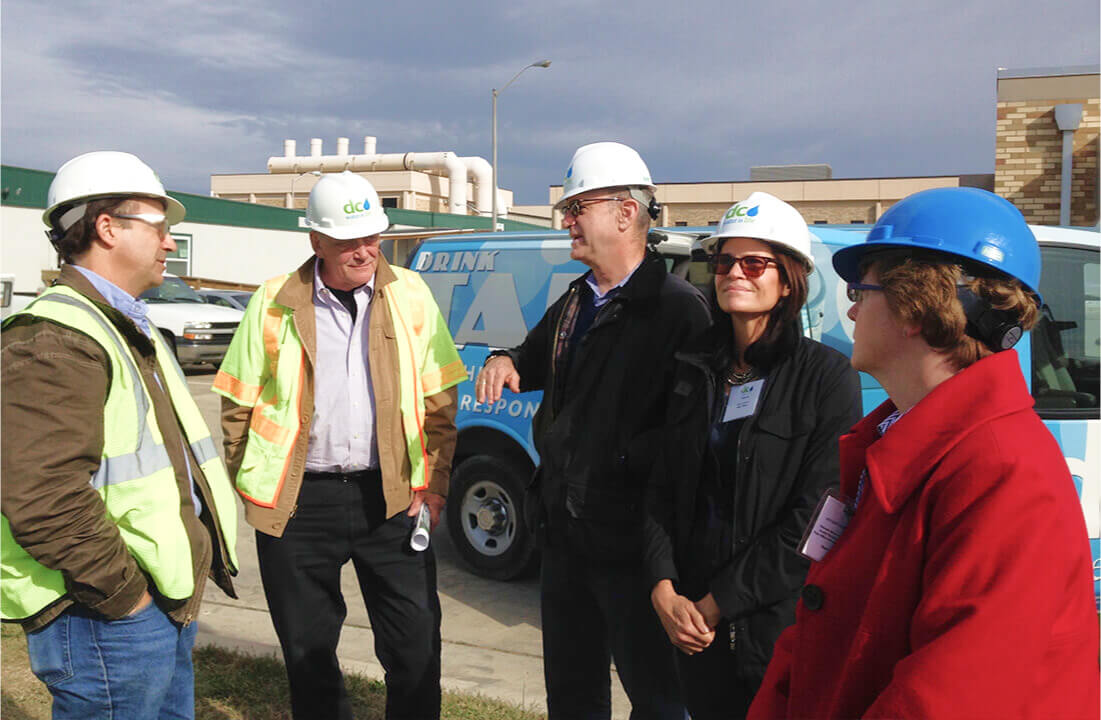
Outcomes
-
83 Grants
-
71 Grantees
2015
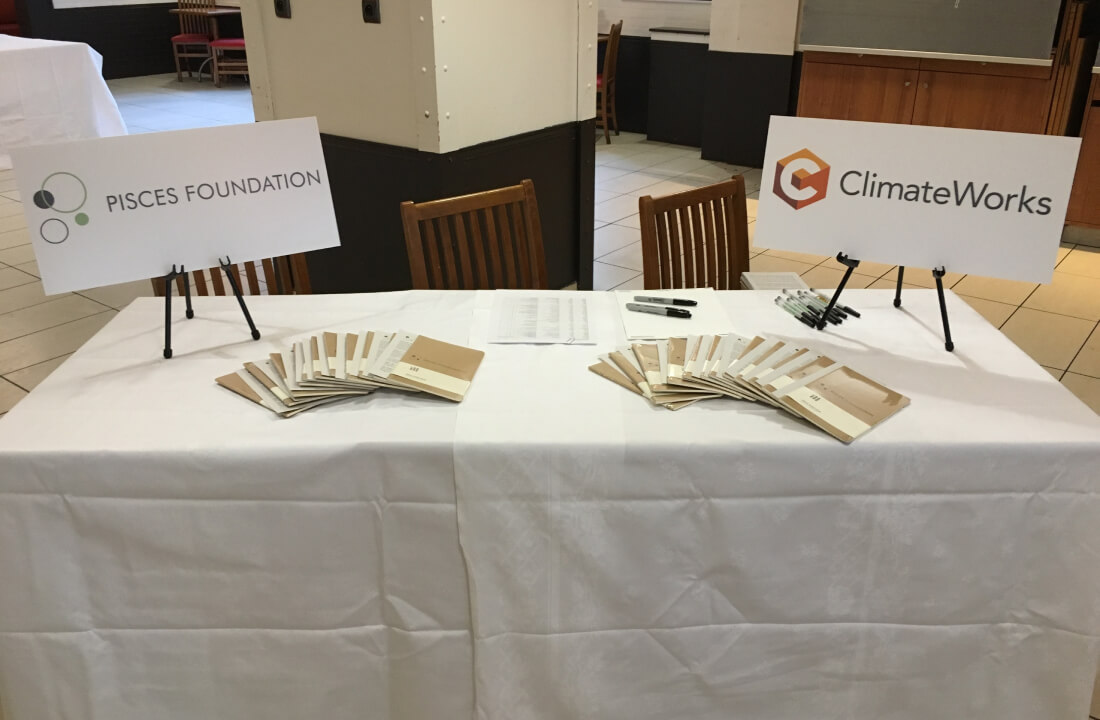
Pisces and ClimateWorks co-host a reception at the United Nations Climate Change Conference in Paris, the start of a range of collaborations over the years to raise the profile of super pollutant mitigation. A highly pressurized advocacy moment, the conference brings together global journalists, diplomats, scientists, policymakers, and climate advocates.
-
88 Grants
-
110 Grantees
2016
Pisces Foundation supports backbone efforts to ensure ongoing protections for fresh water, including supporting the launch of the Clean Water for All Coalition. Coalitions become increasingly emblematic of Pisces funding strategy to ensure fields have critical movement infrastructure to build power and quickly respond to opportunities. Since then, coalition partners have included the Water Equity and Climate Resilience Caucus organized through PolicyLink, the Methane Partners Campaign, and the U.S. Water Alliance's Water Equity Network.
Pisces supports one of the climate funding community’s most significant collaborative efforts, the Kigali Cooling Efficiency Program, contributing $1M to the $50M donor pledge to expand energy efficiency efforts in developing countries to phase down HFCs. Continued work by Pisces partners, including the Natural Resources Defense Council (NRDC) and Institute For Governance & Sustainable Development, leads to ratification of the Kigali Amendment by the U.S., China, and India.
Outcomes
-
114 Grants
-
90 Grantees
2017
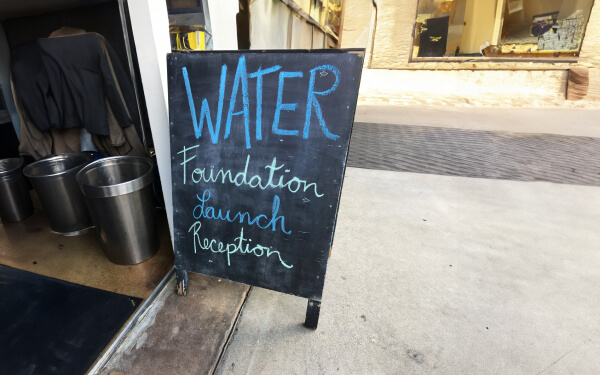
With early support from the Pisces Foundation, the Resource Legacy Fund (RLF) creates the California Water Foundation (now the Water Foundation) to meet the needs of California’s cities, farms, and environment. In 2017 the Water Foundation transitions from a program at RLF to an independent entity, with David Beckman, Pisces President, serving as the founding Board Chair of the startup. The brainchild of Bob Fisher and Laurie Dachs, the Water Foundation grows into a nationally recognized water leader now providing more than $25M in funding each year to water priorities nationally.
Outcomes
-
138 Grants
-
112 Grantees
2018
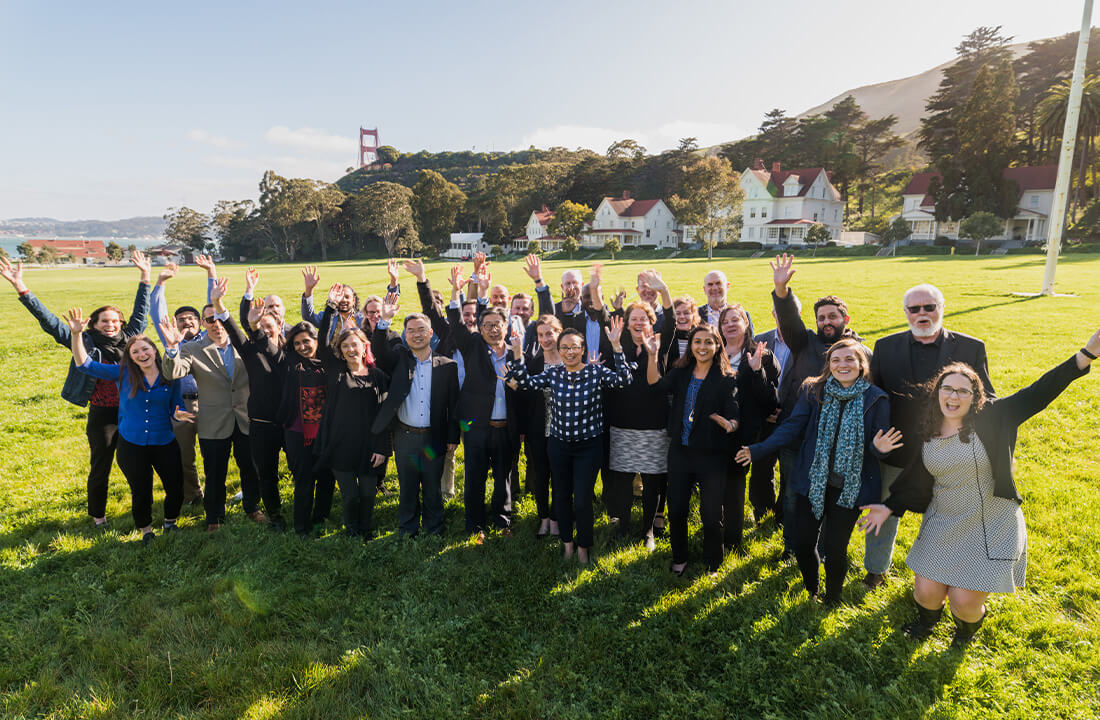
Five years into its work, the foundation convenes grantees in each of its three program areas for a series of collaborative systems thinking workshops held at Cavallo Point, CA. These deep conversations about the fields' complex landscape raise issues of equity, lack of coordinated action, and connectivity. These priorities reinforce the foundation's growing focus on systems change, which manifests as increased funding for movement infrastructure, collective impact approaches, and increased equity in grantmaking.
Pisces Foundation begins hosting regular global convenings focused on methane, bringing together organizations and funders so they might identify, create, and solidify infrastructure for collaboration and collective action that increases the likelihood of meeting shared goals. This work continues through 2024, as partners at the Methane Partners Campaign, GreenLatinos, Earthworks and others work toward adoption and ongoing implementation of the "methane rule," a significant new US emissions standards designed to slash methane pollution.
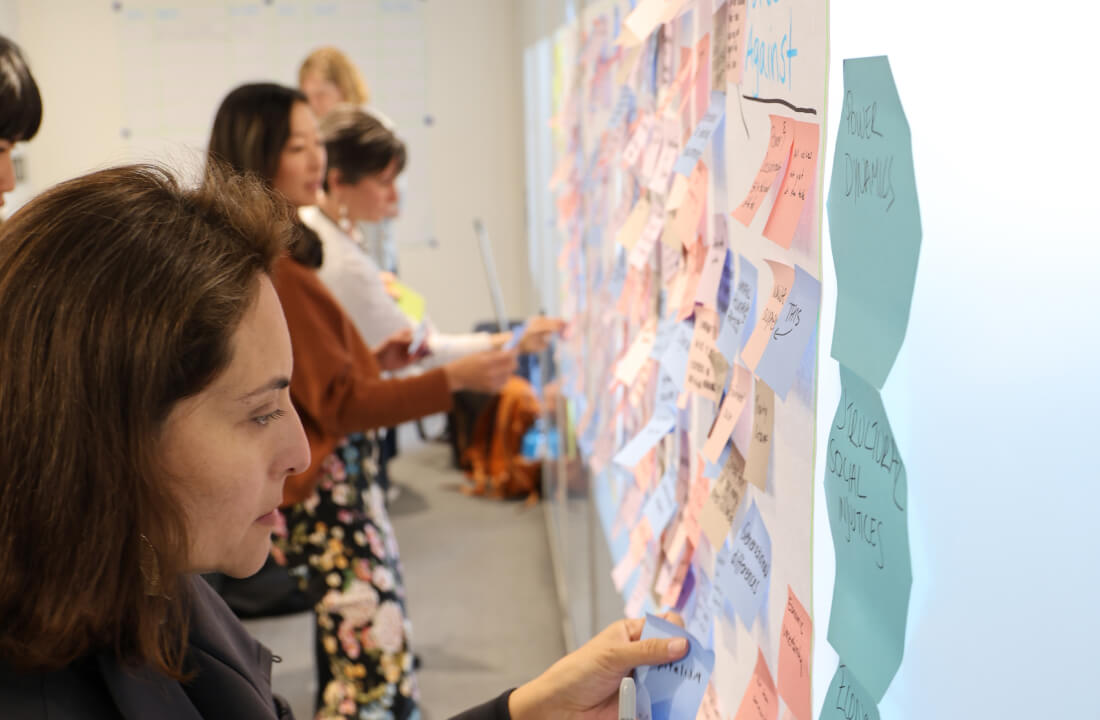
Pisces’ environmental education program deepens commitments to investing in networks, alliances and collaboratives and funds the movement’s infrastructure to support them. Investments in “backbone” grantee partners such as North American Association of Environmental Education (NAAEE), C&NN, National Parks Friends Alliance — alongside regional and state backbone partners — develop the infrastructure movement leaders need to convene, build relationships, craft collective impact initiatives, and deepen the impact of programs in communities throughout the country.
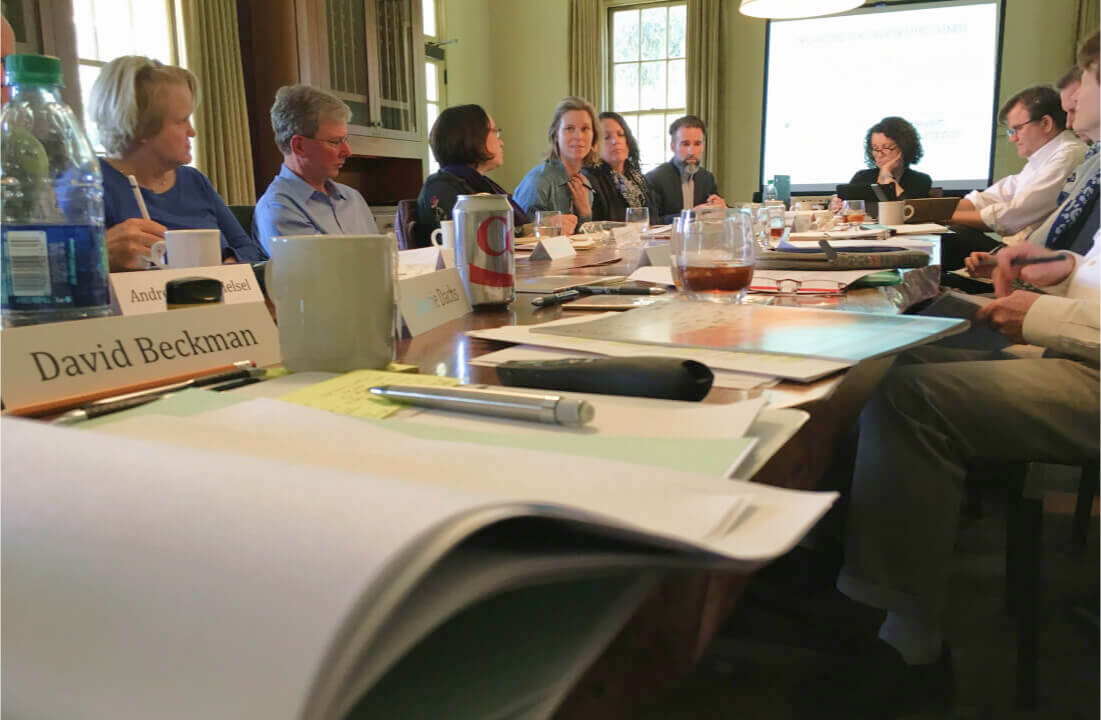
In collaboration with the Hewlett Foundation, Pisces convenes funders, NGO executives and other stakeholders, culminating in a decision to form a pooled funding initiative to strengthen the movement's infrastructure. After 18 months of co-generation with diverse advocates, Mosaic goes on to become a significant participatory grantmaker investing in movement infrastructure to better support people working for clean air and water, a safe climate, healthy and just communities for all, and thriving natural systems.
For the first time, Pisces tests funding through an open grantmaking, offering opportunities to a much broader array of organizations than in past cycles. The approach reflects Pisces' growing attention to transparency and partnership with the fields it supports, exposes bold new ideas to the foundation and builds community through the participatory process. The RFP focuses on “Smart Water” approaches (now “One Water”) in mid- to large cities, garnering 135 proposals of which eight projects are funded. The foundation executes RFPs three more times between 2018–2023.
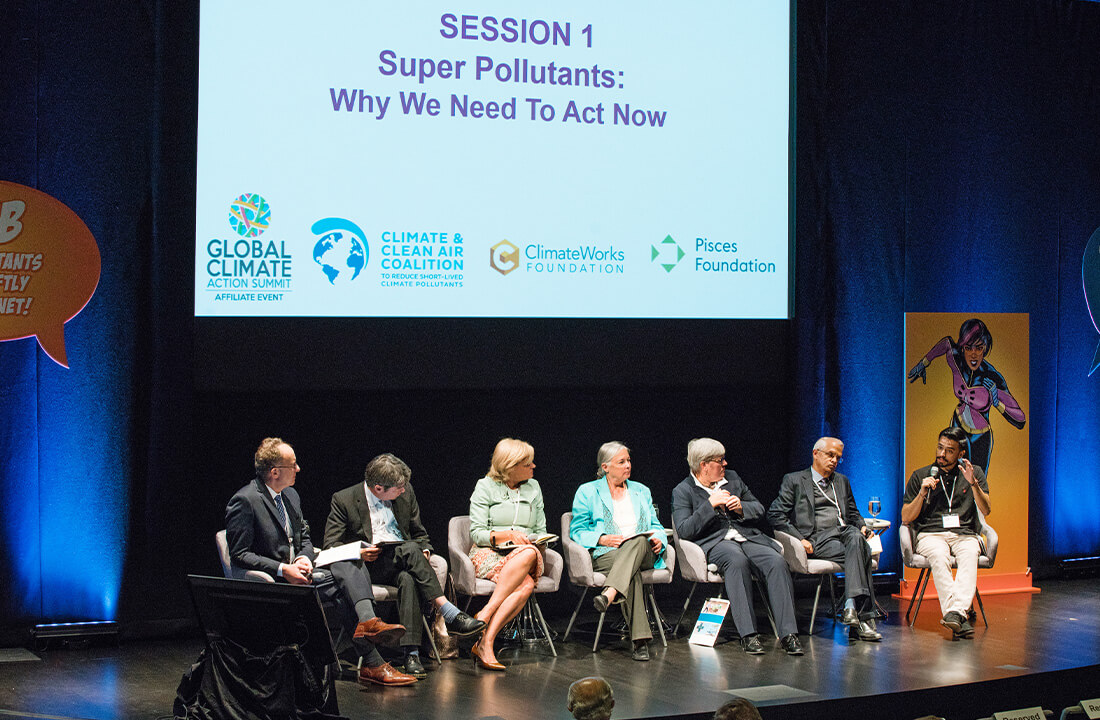
The Global Climate Action Summit brings global advocacy and government leaders to San Francisco. In collaboration with ClimateWorks and the Climate and Clean Air Coalition, Pisces organizes Superpollutant Day during the pivitol climate and energy gathering, to emphasize the imperative of reducing emissions of all pollutants contributing to climate change. The event features speakers with deep expertise in policy, health, environmental justice, and sustainable development.
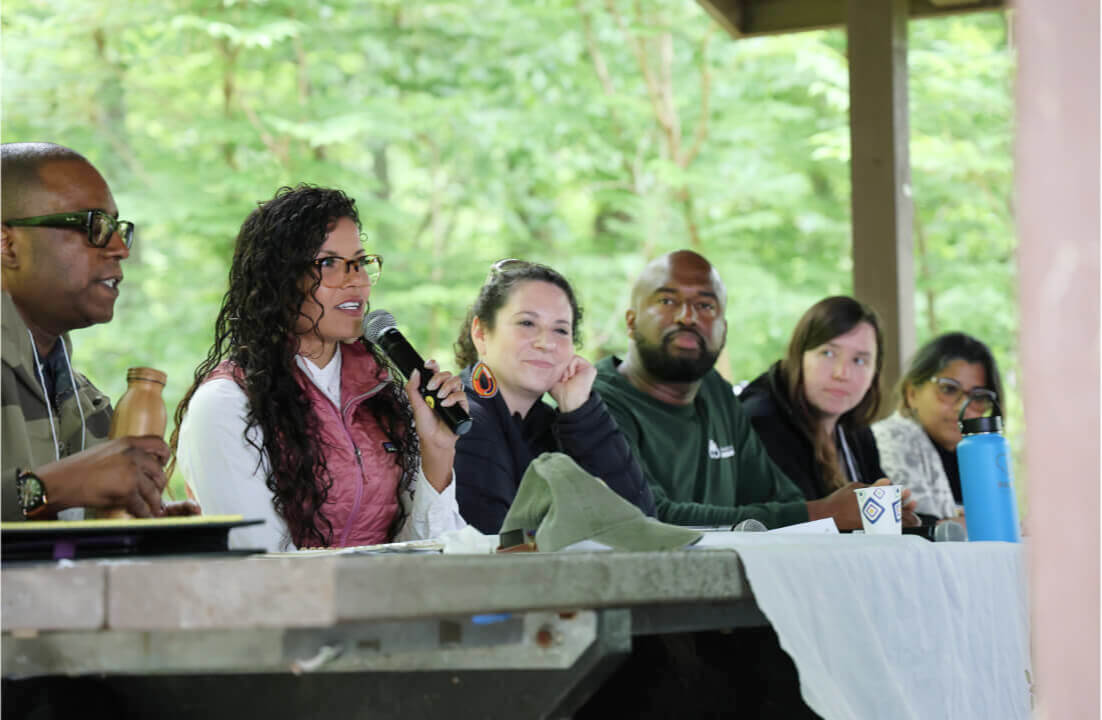
Blue Sky Funders’ Forum kicks off its first collaborative project to develop a stronger communications narrative to tell the story of the value of environmental education and equitable access to nature. The “shared narrative” project, later branded as “Rethink Outside,” develops a new, more inclusive, and relevant narrative centered around the idea of “equitable access to learn, play, and grow in nature.”
Leaning into its organizational principle of engaging and forming partnerships with effective leaders and valuing the collective power of movements, the foundation initiates its support of early and mid-career professionals to advance their careers in the environmental and environmental justice fields. Six exceptional advocates and strategists are engaged between 2018-2023.
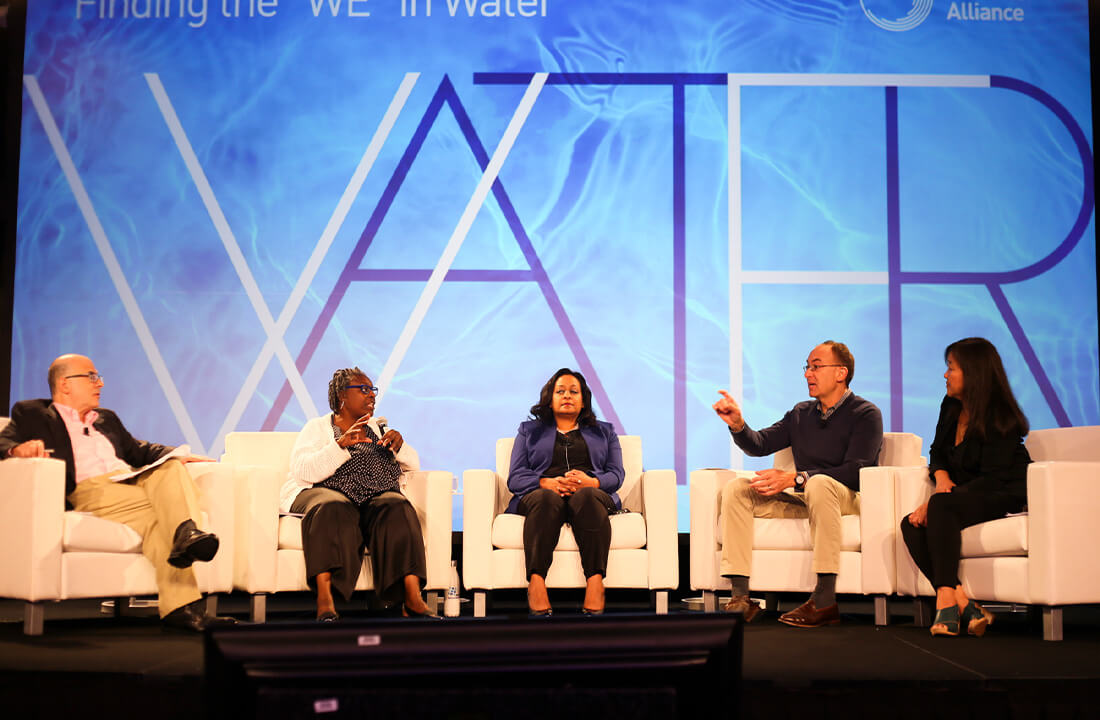
Austin, TX adopts the Water Forward Plan, outlining a holistic and inclusive approach to water resource planning for the next 100 years. Advocates funded by the Pisces Foundation including the National Wildlife Federation play critical roles on the Water Forward Task Force. This work exemplifies the Pisces Foundation’s commitment to elevating One Water approaches in 50 cities. By 2022, nearly two dozen cities, including 13 cities where Pisces makes direct and substantial grants, will achieve progress toward One Water.
Outcomes
-
139 Grants
-
114 Grantees
2019
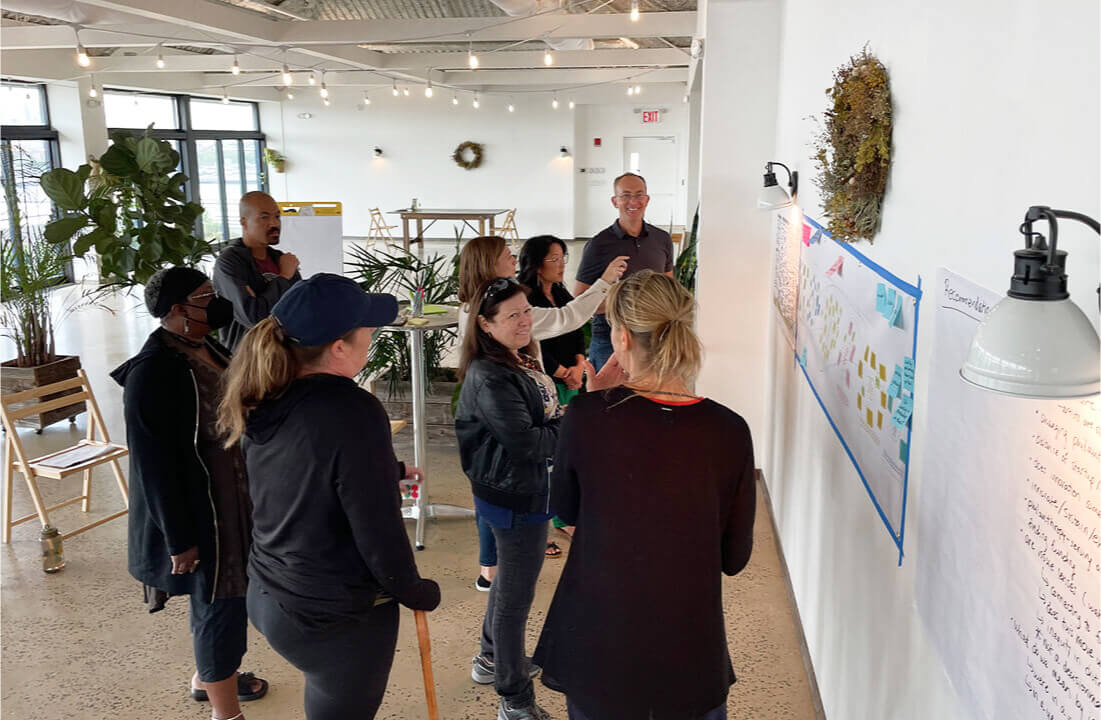
Mosaic is launched to build infrastructure to strengthen the environment movement. Since 2020, Mosaic has invested $20M in 300 grants supporting over 3,000 organizations.

Pisces' environmental education program delves into deep reflection and refines its theory of change to expand the diversity of its grantees and support the movement's effectiveness and equity. The program expands from emphasizing school-based environmental learning through supporting policy and curriculum standards, to informal programming and equitable access to the outdoors, shifting resources and attention to the frontline communities in the field.
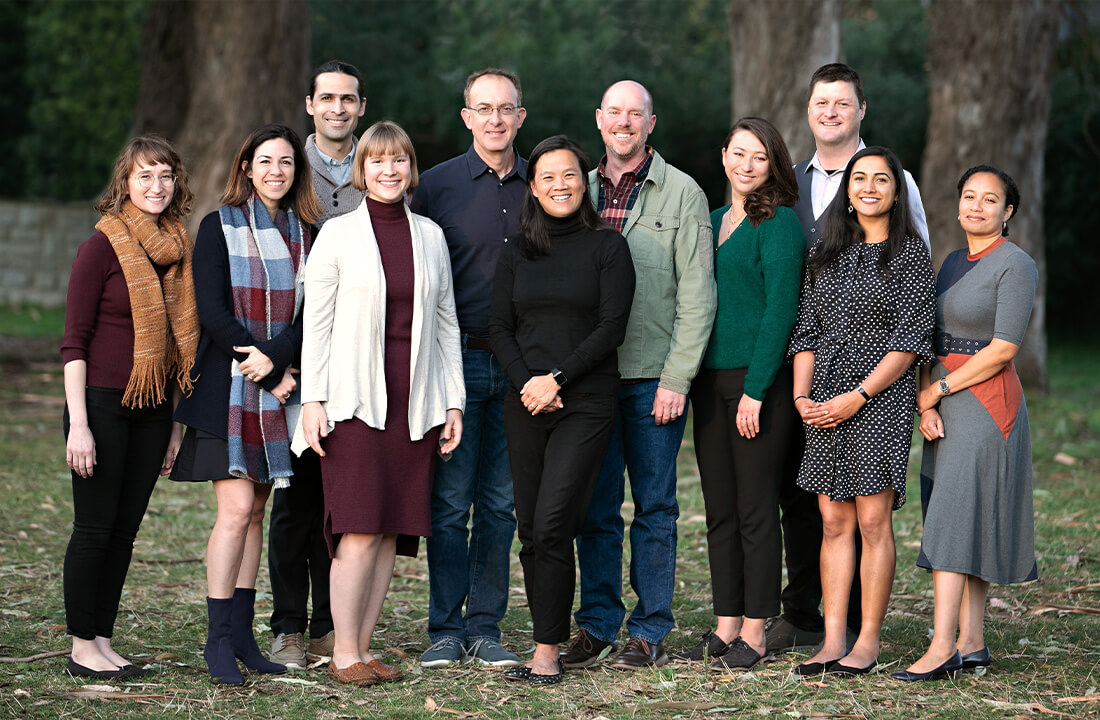
The Pisces Foundation team brings deep issue expertise and commitment to the Foundation’s mission and vision. Many worked as environmental and climate advocates at organizations as varied as California WaterKeeper Alliance, NatureBridge, the Natural Resources Defense Council, and the International Council on Clean Transportation before joining philanthropy. Here, the team gathered in 2019 at the Presidio in San Francisco for a learning retreat.
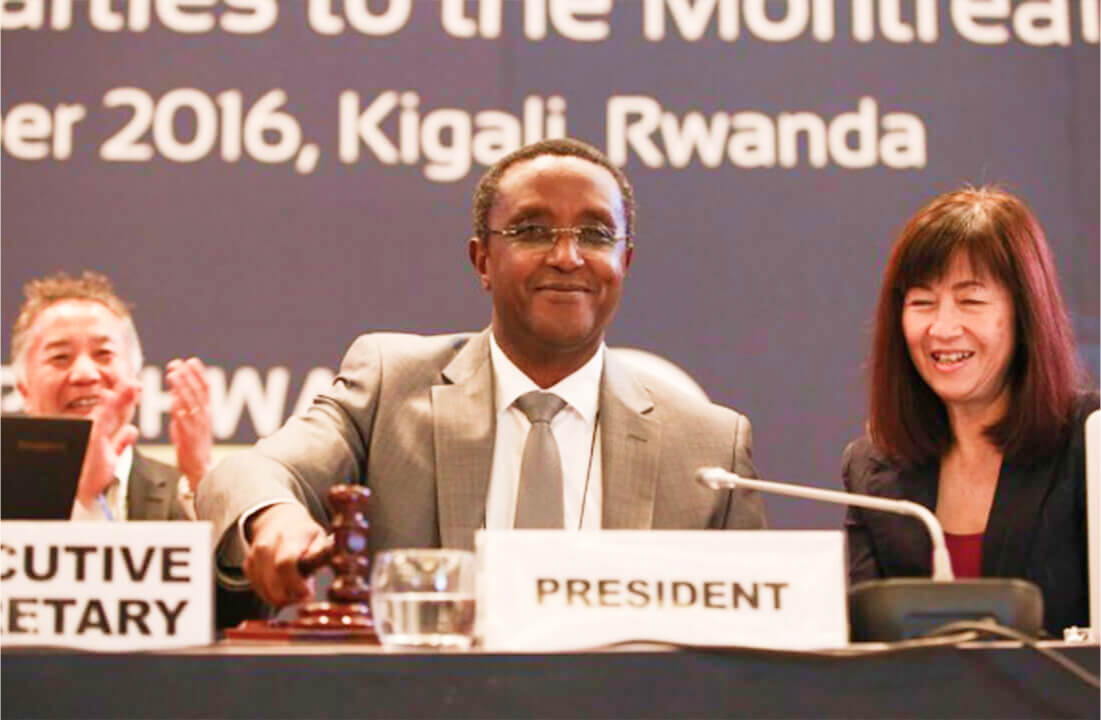
Outcomes
-
126 Grants
-
109 Grantees
2020
Pisces joins the Climate Funders Justice Pledge of the Donors of Color Network. The pledge aims to shift the center of gravity in philanthropy towards racial and economic justice, challenging the nation’s largest climate funders to commit publicly to greater transparency and give at least 30% of their climate funding to the BIPOC-led power building groups who are adressing the climate crisis.
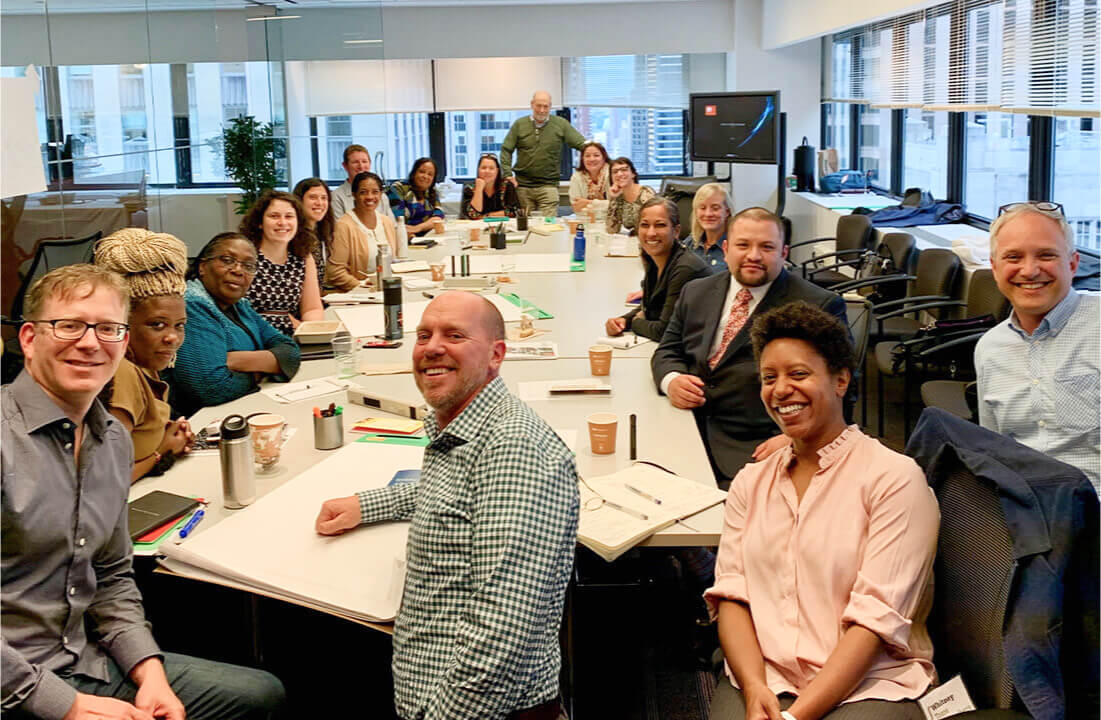
The foundation's periodic strategic refresh applies five years of learnings to identify opportunities for higher impact across all programs: applying systems thinking to maximize impact on complex issues; investing in field building, movement infrastructure, and long-term power building to ensure comprehensive and durable change; and elevating diversity, equity, inclusion, and justice in strategies and operations.
The foundation's environmental education program issues what will become the first of two RFPs. 200 applications from 49 states are received, introducing the team to many new ideas and diverse organizations. In line with the priorities of the foundation’s strategic refresh, the program awards eleven grants to a diversity of leaders and organizations working across the country, emphasizing movement building at the regional level.
As a reflection of the 2020 strategic refresh's renewed emphasis on equity in grantmaking, Pisces' water program enhances its focus on ensuring the needs of those most impacted by poor water policy are met. The program identifies and prioritizes three pillars of water equity: ensuring access to clean, safe, affordable water service, maximizing community and economic benefits of water infrastructure investment, and fostering community resilience in the face of a changing climate.
-
291 Grants
-
233 Grantees
2021
The Land and Water Conservation Fund, a bipartisan commitment to safeguard natural areas, water resources and cultural heritage, and to provide recreation opportunities to all, is fully funded at $900 million annually, unlocking funding for increasing access to public lands. Multiple Pisces grantees organize coalitions that are instrumental in encouraging the full funding.

Years of efforts to elevate funder attention to methane are reinforced by a global agreement on methane mitigation through the Global Methane Pledge at COP26. To accelerate the growing momentum, the foundation's climate and energy program holds a virtual convening focusing on oil and gas methane, bringing together 41 partners and funders representing 23 organizations in the fifth in a series of in-depth field-wide, Pisces-led discussions.
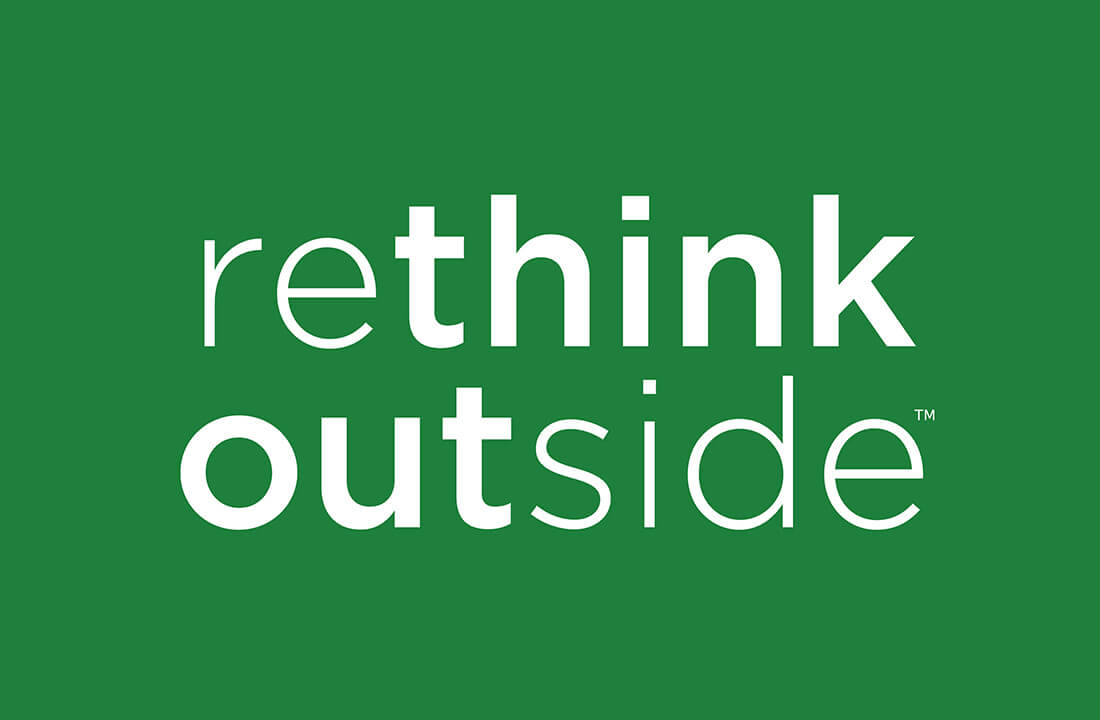
As the Rethink Outside community expands it engages over 830 participants in three webinars, publishes more than 20 stories based on the shared narrative, and motivates 340+ organizations to access Rethink Outside messaging resources. The Rethink Outside Fellows program launches and receives more than 100 applications from emerging leaders of color across the U.S.
Outcomes
-
139 Grants
-
118 Grantees
2022
In the leading philanthropic grantee study, the Center for Effective Philanthropy's Grantee Perception Report, Pisces grantees rate the foundation in the top 85th percentile among participating funders for having an impact on the field, understanding of the field, advancing field knowledge, exhibiting trust with grantees, and embodying a commitment to DEI. Lower scores on grant application processes lead to reflection and consideration for strategic assessments.
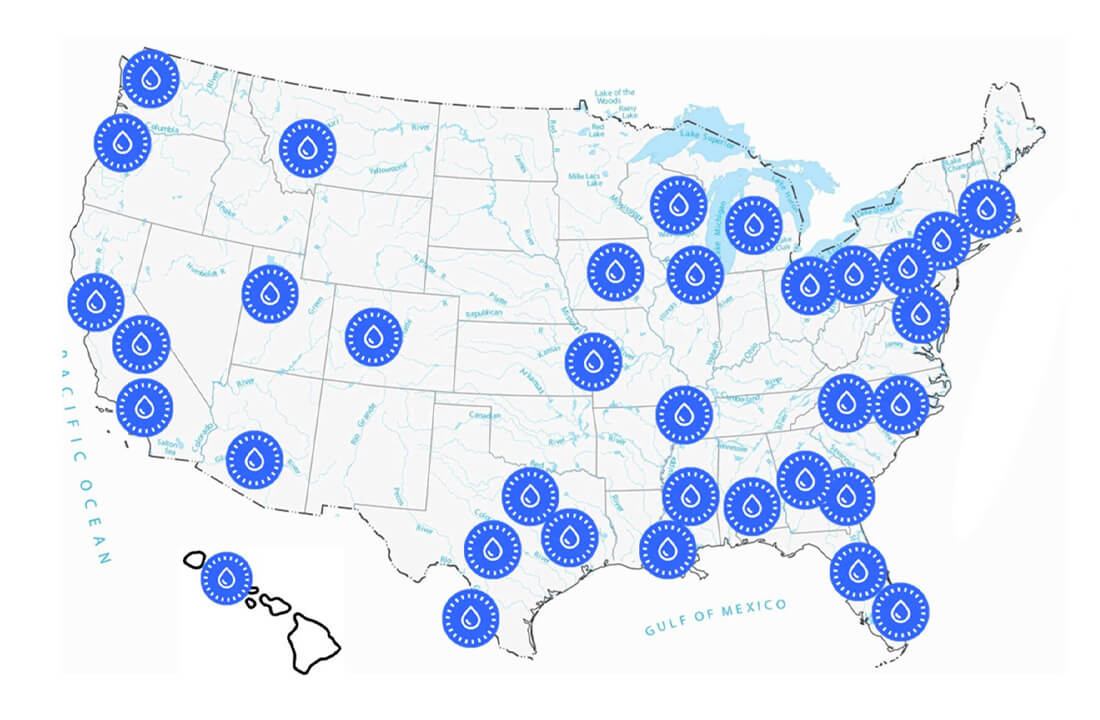
Harnessing learning from previous open and inclusive grantmaking rounds, the foundation launches RFPs in two program areas, environmental education and water. The water program solicits proposals to advance integrated and equitable water management (or "One Water") in U.S. cities. The participatory process is informed by an advisory council of field leaders, including partners from PolicyLink, U.S. Water Alliance, NRDC, and We the People of Detroit. More than 90 applications are submitted, and the program awards grants to organizations working in 9 cities. Between 2018 and 2022, Pisces provides nearly $6 million to 31 organizations through four open RFPs.
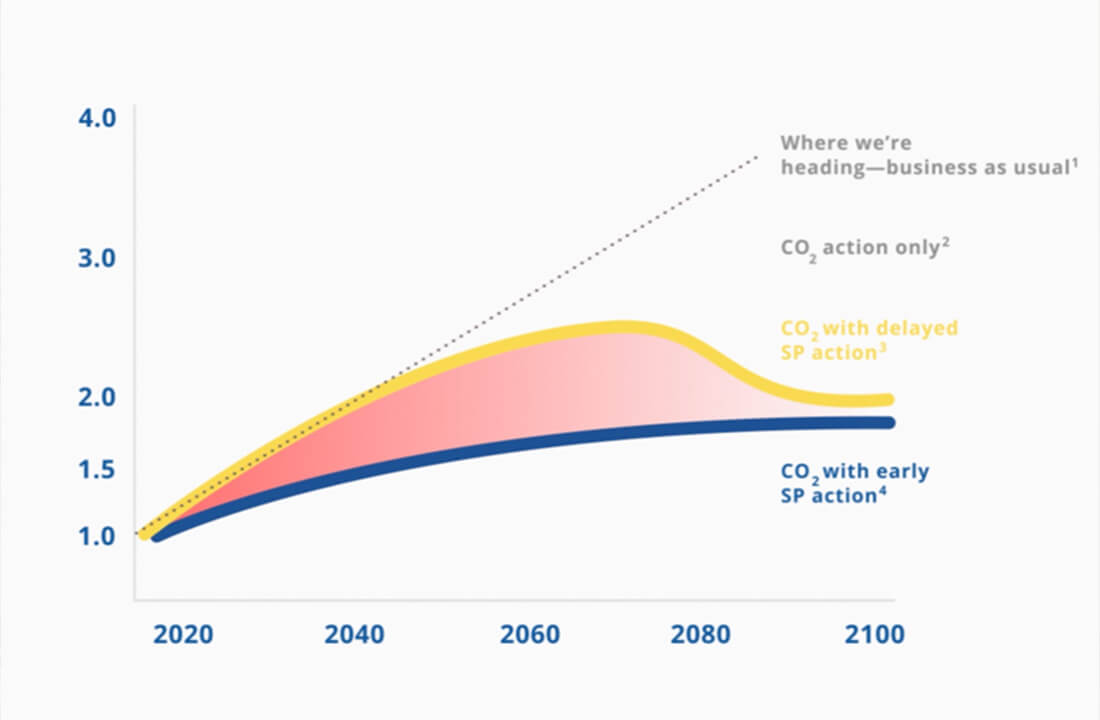
For the second time since 2019, Pisces and ClimateWorks co-organize a three-day Super Pollutant Summit. Taking place in Genoa, Italy, before the COP, the summit is positioned as a paramount arena for philanthropy, policymakers, and NGOs to co-strategize on emergent and near-term opportunities across agriculture, waste, buildings, and transportation industries. ClimateWorks began hosting the biennial Super Pollutant Summits in 2009, with Pisces participating since 2015.
-
126 Grants
-
108 Grantees
2023
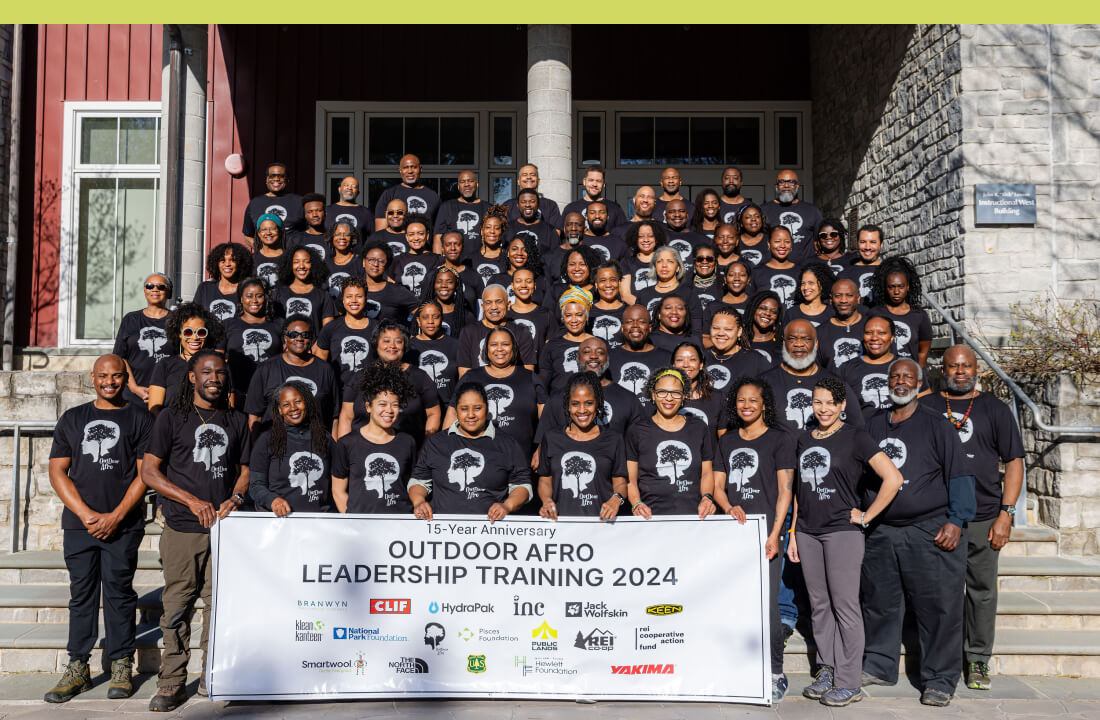
The environmental education program continues its support of grantees working to expand and diversify the movement by building the capacity of strong networked organizations engaging communities of color in the environmental and outdoor sectors. Partnerships include Justice Outside, Outdoor Afro, Latino Outdoors, Diversity Pathways, National Recreation and Parks Association, Green 2.0 and more.
Outcomes
-
124 Grants
-
114 Grantees
